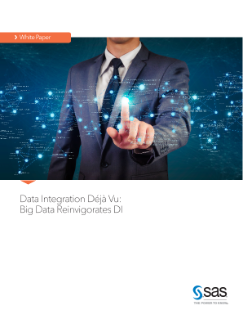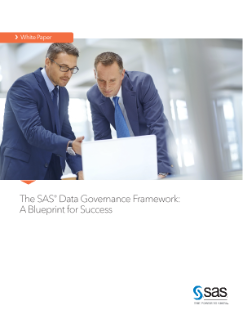
Jeff Stander passes along some of the lessons he's learned about third-party metadata collection.

Jeff Stander passes along some of the lessons he's learned about third-party metadata collection.

I don’t know about you, but I'm asked every day where some type of data lives in our enterprise. I keep thinking that we have not done a good job of helping people learn to help themselves! A few things I have learned about corporate data assets are: The data

Integrating big data into existing data management processes and programs has become something of a siren call for organizations on the odyssey to become 21st century data-driven enterprises. To help save some lost time, this post offers a few tips for successful big data integration.

In recent years, we practitioners in the data management world have been pretty quick to conflate “data governance” with “data quality” and “metadata.” Many tools marketed under "data governance" have emerged – yet when you inspect their capabilities, you see that in many ways these tools largely encompass data validation and data standardization. Unfortunately, we
.@philsimon on the relationship between metadata and unstructured data.

‘Tis the season. While the season means different things to different people, its most common theme is people buying things for people. Things that become presents when they are covered in wrapping paper. Two retailers have been running television commercial campaigns this season about how presents are wrapped. One campaign

Data. It's everywhere. It can reside in many places through replication, accessibility needs or infrastructure costs. For reporting, that same data can be structurally changed (denormalized or aggregated) into additional reporting and analytic data repositories. Over time, new sources of enrichment of that data become available through traditional data sources
Data. Our industry really loves that word, making it seem like the whole world revolves around it. We certainly enjoy revolving a lot of words around it. We put words like master, big, and meta before it, and words like management, quality, and governance after it. This spins out disciplines
I've written many times on this site about the exceptional data-management techniques of Amazon. The company does a remarkable job at managing both its operational and analytical systems. Because of the way that it handles vast troves of information, Amazon can do things that many companies cannot even approach. Yet
I've written before on this site about the Netflix data advantage. The company isn't exactly forthcoming about its data, a certainly tenable position these days. After all, data is a major source of its competitive advantage. Now, thanks to an astonishing article by Alexis Madrigal in The Atlantic, laypeople now possess a much